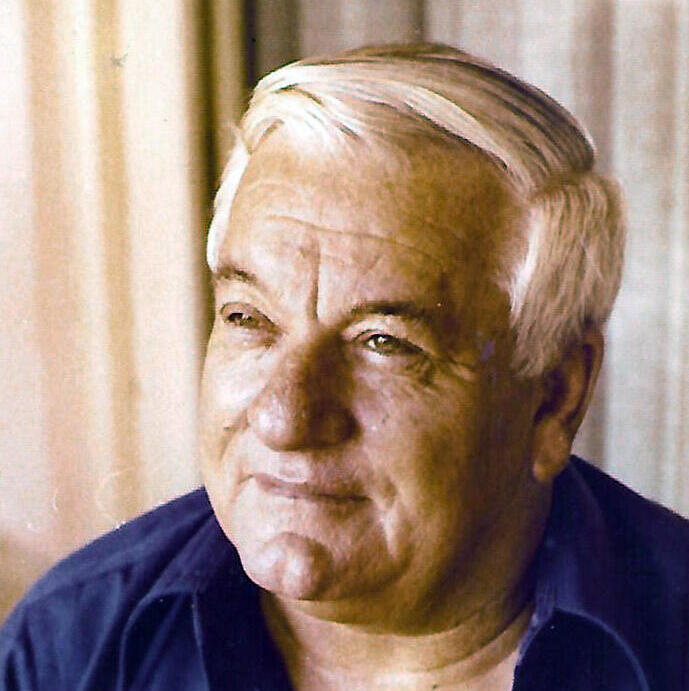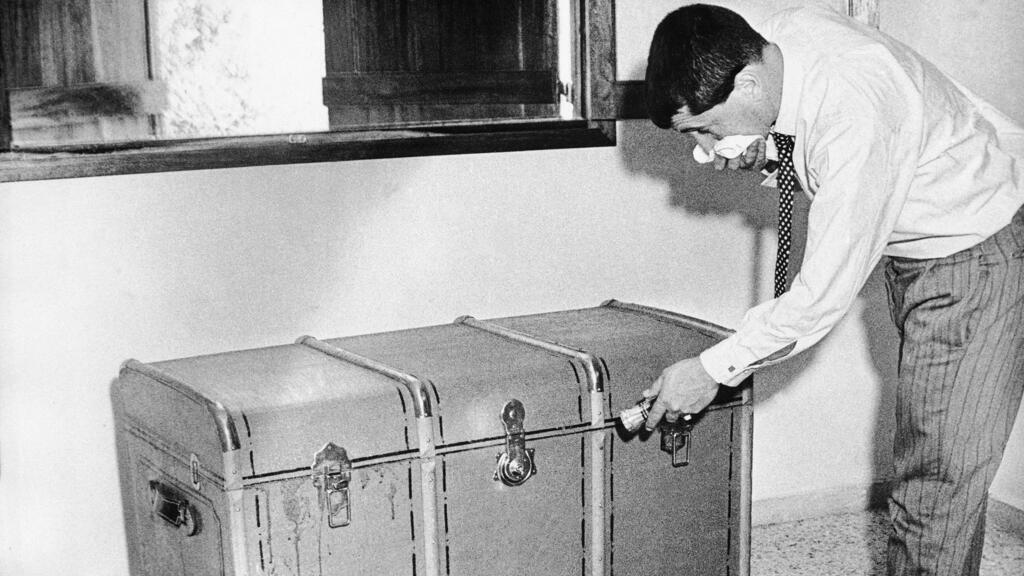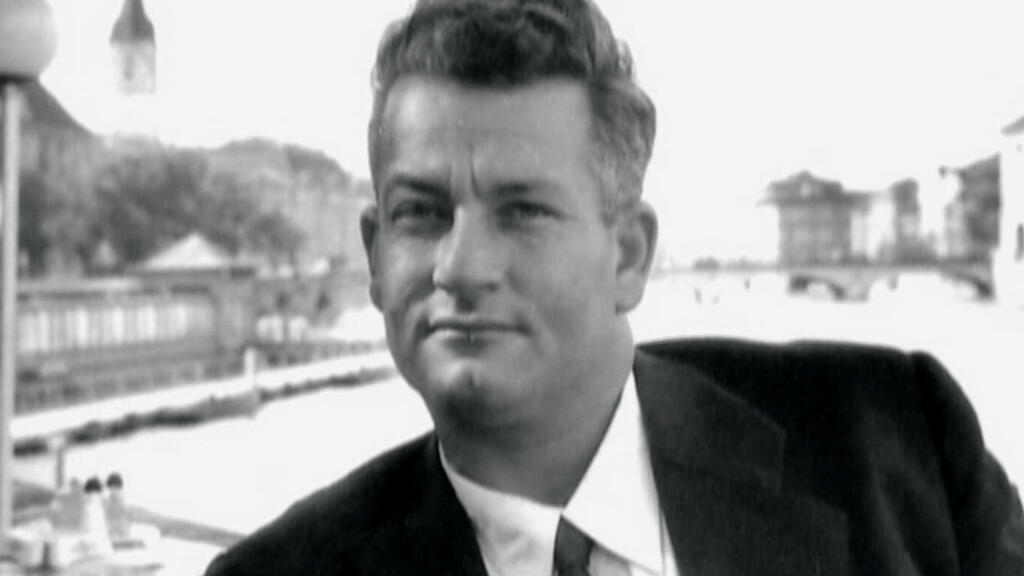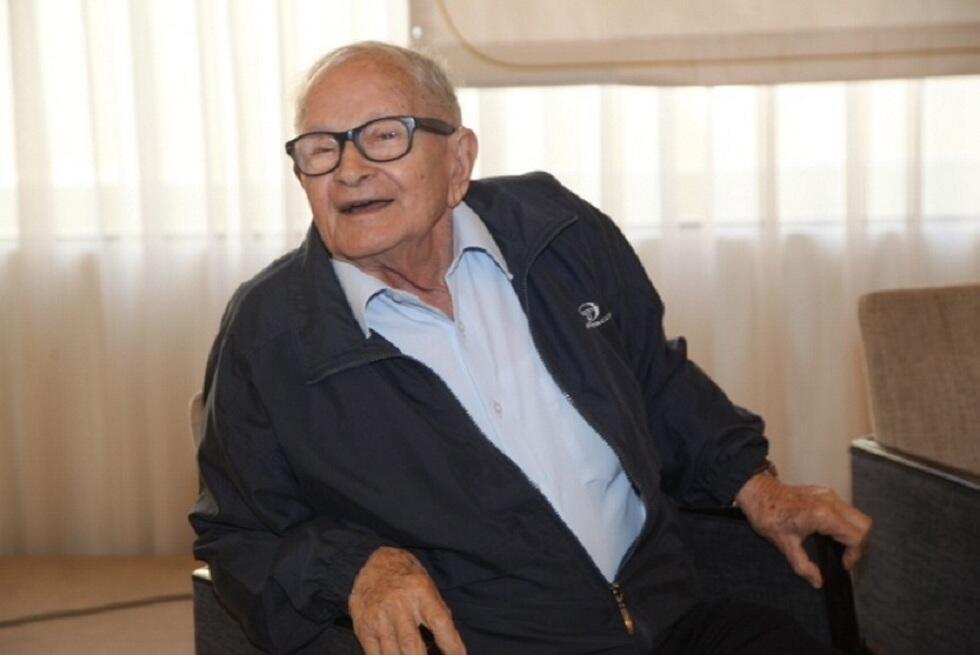Getting your Trinity Audio player ready...
He led an operation to assassinate an especially cruel Nazi, smuggled deal-breaking ammunition for the fledgling State of Israel during the War of Independence and sent enemies envelopes containing explosives.
Yosef “Yoske” Yariv, who headed Mossad’s special operations division known as “Caesarea”, is ranked among Israeli intelligence’s brightest minds.
HOT8’s new documentary film, “Know Thine Enemy”, investigates this complex character who could both conduct global ,undercover operations and joke around with the Israeli comedy troupe “HaGashash HaHiver”. Director, Yarin Kimor: “He was made of all the things needed for security leadership.”
Herberts Cukurs arrived in Brazil with a record of the most horrific acts. In his Latvian homeland, he was greatly admired as a gifted aviator; however, during the Second World War he turned into a particularly sadistic murderer. He acquired the moniker “The Hangman of Riga” following atrocities he committed against the Jews of that city, including setting fire to a synagogue with 20 Jews locked in the basement. Fleeing to South America, Cukurs believed he could start a new life without being held accountable for his crimes. For 20 years, he led a tranquil life running a business renting out tourist leisure boats. All this changed when he met Yosef (Yoske) Yariv.
Yariv headed “Caesarea”, Mossad’s special operations division. In the 1950s, Mossad decided to bring Nazi criminals to account. Yariv compiled a list of war criminals who he particularly wanted to bring to justice. Cukurs was on the list.
Although Yariv was a commander, he was adamant regarding personally executing Nazis on behalf of the Jewish People. Yariv initiated, organized and managed the worldwide operation to assassinate Cukurs. This complex operation involved German-speaking human bait, cover stories, front organizations and forged identity documents. The operation culminated in Cukurs being met by Mossad agents including Yariv upon his arrival at an apartment in the Uruguayan capital of Montevideo specially rented for the assassination. Although Cukurs’ understood his predicament he tried to resist, biting, almost severing, Yariv’s finger. Two bullets to Cukurs’ head ended the life of this horrific mass murderer.
The body of 64-year-old Cukurs was found in a wooden trunk. A note listing his crimes had been placed next to the body. The note was signed by “those who can never forget”. Uruguay police immediately assumed an Israeli revenge operation, with media outlets publishing the names of suspects. It was soon understood that these were names on forged passports of individuals who since fled the country. Yariv and his colleagues made it back home to Israel without being captured.
The amazing story of Yariv and the “Caesarea” division is recounted in a two-part documentary film directed by Yarin Kimor was recently broadcast on HOT8 and is available on VOD.
Yariv died aged 75 in 1998. “It’s hard to make a film like this when you don’t have the hero,” admits Kimor, “but his personality takes shape through the people who knew him.” Kimor’s film includes interviews with individuals from Yariv’s world who have since died. Yariv’s wife Zahava Yariv, former Mossad Chief Rafi Eitan, poet and friend Haim Gouri and Palmachnik pioneer of Israeli intelligence, Avraham Dar all give insights into Yariv’s character. In old age, they seemed keen to take part for recognition of their own deeds and to pay tribute to their friend, Yoske. Some had been extremely close to him.”
Through interviews with now very elderly former Israeli intelligence personnel, the film portrays “Caesarea” as very daring and tremendously sophisticated. In addition to targeted assassinations of Nazis, the interviews regale accounts of overseas operations, stealing uranium for Dimona’s nuclear reactor and sending envelopes of explosives to Egyptian scientists.
To obtain security clearance for these stories, Kimor needed to be creative. On the story of Mossad’s operation on Alois Brunner, a senior aide to Adolf Eichmann, responsible for deportations of Jews to extermination camps, Yarin elaborates: “I interviewed Rafi Eitan. At the time, I couldn’t say that Israel sent Bruner explosives envelopes. When I asked Eitan who sent the envelopes, he succinctly responded: 'I’m sure it wasn’t the postal system.' This concise and sharply witty comment that revealed nothing was cleared by the censor. The public would understand.
“This project aims to examine whether Mossad’s reputation as the world’s best intelligence organization actually holds true, and if so, what factors make it so. I deciphered some of these factors.
“Firstly, Mossad is the world’s only intelligence agency that represents not only a country, but an entire nation, protecting Jews worldwide.
“The second unique aspect is Mossad’s attitude towards failure. If someone in Mossad fails, the organization will embrace him and his failure. Mossad sees no dissonance between excellence and failure and believes that those with no fear of failure are likely to be more daring. Operatives who are afraid may well take the very path the enemy expects. Failure is regarded as a stepping stone to success.
“The third unique aspect is that commanders - the Mossad chief himself, or any senior member of the organization at Yoske’s level - will be out in the field. It’s as if the chief of staff, along with a major general are out in the field conducting on an operation with three soldiers.
“Lastly, is the distinction of the roles of generals and commanders. Borrowing the structure from IDF’s General Staff Reconnaissance Unit, in Mossad, there is a field commander, above him there’s an operations commander, and above him is the general observing everything from above. Ostensibly this structural friction should create ego clashes. In practice, however, it doesn’t. Someone in the system can see different perspectives that can be integrated into operations without harming commanders in the field. It was once explained to me by the Mossad chief: ‘It’s much harder to stop horses from charging horses than to stop them.’ The charging horses want to carry on charging. Sometimes the Mossad chief’s role is to stop the horses from charging. That’s much harder.”
Yoske Yariv was good at applying these elements, pioneering Mossad as the world’s best intelligence agency. The film paints him as a brave, daring, creative and sophisticated all-can-do commander. He was good at hiding in the shadows, protecting the secrecy of worldwide operations. Conversely, he was charmed by Israel’s bohemian community, keeping up close friendships with the “Gashah Hahiver” comedy trio. He loved rubbing shoulders with the ingenuity and talents of people on the stage. Kimor believes that was his way of “flirting with the reflected fame of others, without it sticking to him.” HaGashash HaHiver’s Gavri Banai comments that “He was a kind of intellectual. He understood our language and mindset.”
Yariv was outstanding at thinking out of the box, allowing for some of the most creative and decisive operations in Israel’s wars. Yariv played an important part in Israel’s upturn in the War of Independence. In March 1948, when - without guns or ammunition - Israel’s situation seemed almost lost, Yariv and his Palmachnik friends found ways to circumvent the British sea blockade. Yariv came up with the idea of concealing Czech guns inside agricultural equipment aboard the Nora, camouflaging them as legitimate cargo. Thanks to Yariv, every soldier had his own gun. David Ben Gurion, Israel’s first prime minister is seen in the film commenting that the Czech guns rescued Israel, commenting: “We wouldn’t have survived without them.”
From the operation to assassinate Cukurs we learn that Yariv was an assassinations expert. It wasn’t just Nazis though. He and his men also targeted officers and key military personnel in Arab armies. Yariv was highly experienced in intelligence gathering and planning. His operations man, Natan Rahav, prepared the explosives. Mustafa Hafez, an Egyptian Army colonel who organized terror cells infiltrating from the Gaza Strip into Israel, was assassinated in one of Yariv’s operations. Hafez was killed upon opening a booby-trapped book prepared by Rahav.
Less talked about is the harm caused to innocent civilians. In 1962, Israeli scientists learned that Germans with Nazi pasts were developing innovative missiles for the Egyptians. These missiles had a range constituting an existential threat to southern Israel. Mossad operated against these scientists, sending them explosive, yet unassuming-looking, envelopes. This operation was complicated and included infiltrating the Egyptair offices in Germany which served as a cover for Egyptian intelligence. Mossad agents managed to insert booby-trapped envelopes into a diplomatic post-bag which made their way to the German scientists.
Not everything went as planned. An envelope sent to German scientist Wolfgang Piltz was opened by the wrong person. His secretary, thinking it was a letter from her boss’s wife regarding their divorce proceedings, opened the envelope and the explosion blinded her. Decades on, this doesn’t seem to weigh on the consciences of those involved, particularly as their goals were achieved: the Egyptian missile project came to a halt. Kimor explains: “The secretary was on the side of evil. This is a chance she took. “Rafi Eitan further comments “I never regretted anything I was involved in. Even when I failed. I’d finish the work and go to sleep.”
Senior Mossad operative and Nazi hunter Shaike Dalyot says in the film: “Feelings are not part of the game.” Kimor further elucidates: “It’s not that they’re people without feelings, but feelings are not considered a driving factor. The only driving factor is commitment to the goal and cold discretion regarding the means to achieve it. Feelings can’t make you stop. Only morality can make you stop. There’s a difference between the two.
“I asked Shaike how Yoske reacted to the 1965 capture and execution of his direct subordinate Eli Cohen for spying for Israel in Syria, and whether Yariv was depressed about it. Shaike explained, 'For us, there are no emotions.' He responded rather crassly, not because there are no emotions, but because emotions are not considered factors."
So, can we say that these aren’t people devoid of feelings, but rather that feelings can be pacified?
“This definition is correct. I’ll go further by saying that in all of Mossad’s operations, family feelings are very much considered as factors. The Mossad chief has been known to ask to talk to a four-year-old boy who doesn’t want to part from his father on his way to a tough operation. He can tell his subordinate about the operation: 'Go home to your family.' This makes Mossad unique. Family support is regarded as extremely important.”
Avraham Dar further explains this in the film: “There was violence on a daily basis. Our unit took initiative. We operated cruelly. Anyone I had unfinished business with was executed. The only thing I was afraid of was my wife. People ask me how I look so young. I tell them that my backside has tightened up so much out of fear that it has stretched my skin.”
Kimor was surprised to learn that Mossad agents didn’t just carry out operations for the State of Israel, but also acted in the service of other countries in exchange for some kind of benefit for Israel.
“There was a deal with France. We supplied them with intelligence and operations in Algeria. We had no interests there, but we were dependent on arms supplies from France, so we were willing to pay with controversial outsourced tasks. These included sending an IDF battalion to the Korean War and operations conducted by intelligence fighters in French uniforms in Algeria.”
Yariv, the star of the film who commanded enormously daring operations and is highly regarded within Mossad, never served as chief of the organization. In 1967, he was transferred to Paris to serve as the Mossad chief’s representative in Europe. In 1972, he retired from Mossad.
“Some people viewed him as head of Mossad. He was certainly capable, but it always comes down to internal politics and power struggles.”
Accounting for why Yariv was never made Mossad chief, Kimor says, “Yariv was just short of the support needed to become Mossad head. He was made of all the things needed for security leadership.”






